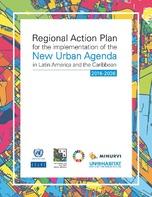Land Library
Welcome to the Land Portal Library. Explore our vast collection of open-access resources (over 74,000) including reports, journal articles, research papers, peer-reviewed publications, legal documents, videos and much more.
/ library resources
Showing items 1 through 9 of 153.The article discusses whether deforestation in the Amazonian region should be considered a typical case of market failure and computes the opportunity cost of economic activities that promote deforestation relative to uses that keep the forest intact.
China’s quest for natural resources in Latin America / Felipe Freitas da Rocha and Ricardo Bielschowsky .-- Corporate governance and international bond issues by Latin American corporations / Georgina Núñez Reyes, Ignacio Perrotini Hernández and Francisco López-Herrera .-- The spillover effect of
This document, prepared by the Economic Commission for Latin America and the Caribbean (ECLAC), in cooperation with the United Nations Human Settlements Programme (UN-Habitat) and the Forum of Ministers and High-Level Authorities on Housing and Urban Development in Latin America and the Caribbean
Project ROA 293-9 "Strengthening national capacities to design and implement rights-based policies and programmes that address the care of dependent populations and women’s economic autonomy in urban development and planning"
The Regional Action Plan for the Implementation of the New Urban Agenda in Latin America and the Caribbean (RAP) seeks to be the regional expression of the New Urban Agenda (NUA).
Recognition and respect for tenure rights has long been recognized as an important concern for development, conservation, and natural resource governance.
The Regional Action Plan for the Implementation of the New Urban Agenda in Latin America and the Caribbean (RAP) seeks to be the regional expression of the New Urban Agenda, setting out potential actions and interventions as well as relevant and priority policy guidance for all Latin American and
This article seeks to investigate whether concern for food security and investment liberalization are the principle drivers of land-grabbing in Africa.
Sub-Saharan Africa has always been perceived as a land-abundant continent. Deininger & Byerlee (2011) estimate that the continent has the largest area of potentially available uncultivated land.









